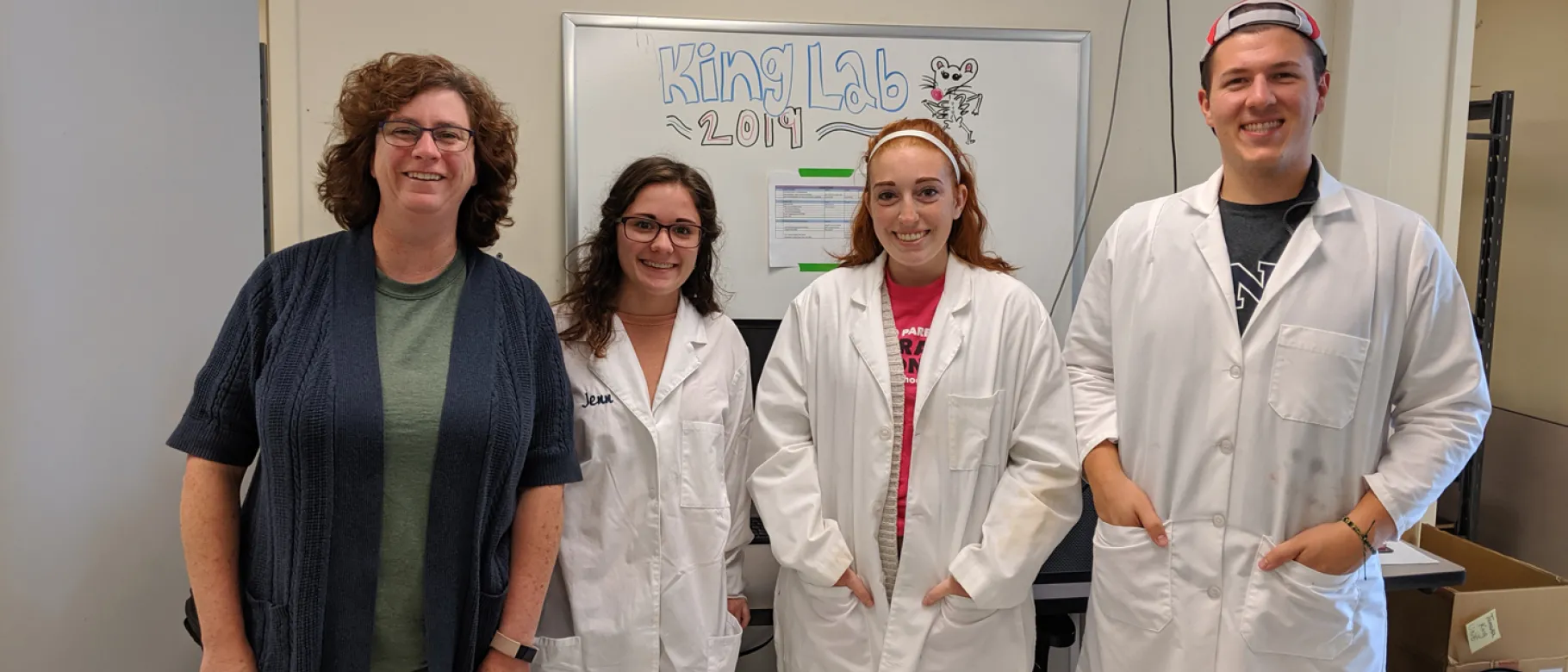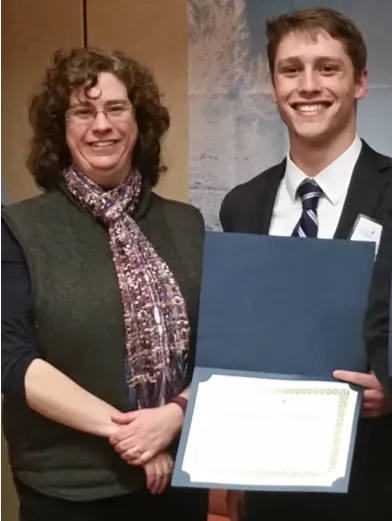King Lab publishes research on sex differences in temporomandibular joint pain

Members of the laboratory of Tamara King, Ph.D., associate professor of physiology in the College of Osteopathic Medicine, recently published their research on the biological underpinning of temporomandibular joint (TMJ) disorder (TMD) in internationally recognized publication PAIN, the journal of the International Association for the Study of Pain.
TMD, which can be caused by temporomandibular joint osteoarthritis, causes severe pain in the jaw, along with clicking and/or grinding noises when one opens or closes one’s mouth. This pain can progress, becoming fairly constant, and it is often reported as severe. Patients may be prescribed medications, such as non-steroidal anti-inflammatory drugs (NSAIDs) for mild to moderate pain and opioids for more severe pain. Neither of these medications provides adequate pain management for all patients because the doses needed for relief are often so high, they create intolerable side effects or put patients at risk for addiction.
Members of the King Laboratory seek to find better ways to treat the chronic pain of TMD by gaining a better understanding of the biological mechanisms that underlie it. Lab members’ efforts were first initiated in the fall of 2013 by then-undergraduate student Sebastien Sannajust, B.S., ’15, who joined the King Lab as a pre-dental student majoring in medical biology, and Ian Imbert, M.P.H., who is now Maine AHEC CUP Scholar Program manager and AHEC clinical coordinator.
The research team found that TMJ pain emerges more easily and with less joint damage in females compared to males. In addition, exaggerated pain responses to normally innocuous stimulation spread from the osteoarthritic joint across the face in both males and females. This persistent jaw pain beyond the site of the damaged joint indicates that the central nervous system is playing a role in increasing the pain, a phenomenon termed “central sensitization.” The development of central sensitization is often linked to drug resistant pain states, which may explain why TMD patients experience such severe pain that is very difficult to treat. This research indicates that pain associated central sensitization develops more easily in females compared to males, which is also consistent with TMD occurring eight to nine times more frequently in women.
The team discovered that the increased likelihood of the development of persistent jaw pain in females is not due to increased joint or bone damage. They, therefore, concluded that there is a fundamental difference in the way that females process joint pain compared to males, making them more susceptible to development of severe TMD.
The research was augmented through collaboration both locally with Meghan May, Ph.D., associate professor of microbiology, and nationally, with Mary Barbe in the Lewis Katz School of Medicine at Temple University in Philadelphia and Lucy Liaw at Maine Medical Center Research Institute in Scarborough, Maine.
The King Lab is continuing to examine mechanisms that mediate chronic TMD pain. This project is led by Victoria Eaton, B.S. ’19, laboratory manager and senior research technician, who is working with a diverse team of students that include UNE undergraduate students from the pre-dental program, Andrew Elkinson (Medical Biology, ’20) and Caitlyn Daly (Medical Biology, ’21), as well as Craig Yanuszeski (D.O. ’22). Together they are examining which regions of the brain may be mediating the increased pain in females compared to males -- a critical step in gaining a better understanding of why females are more likely to develop this pain state and how they may respond differently to pain management strategies compared to males.
